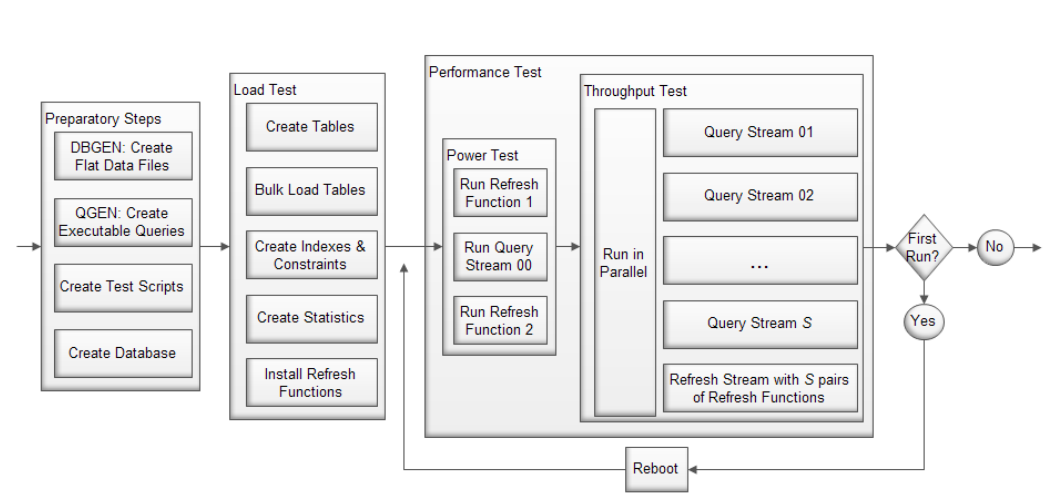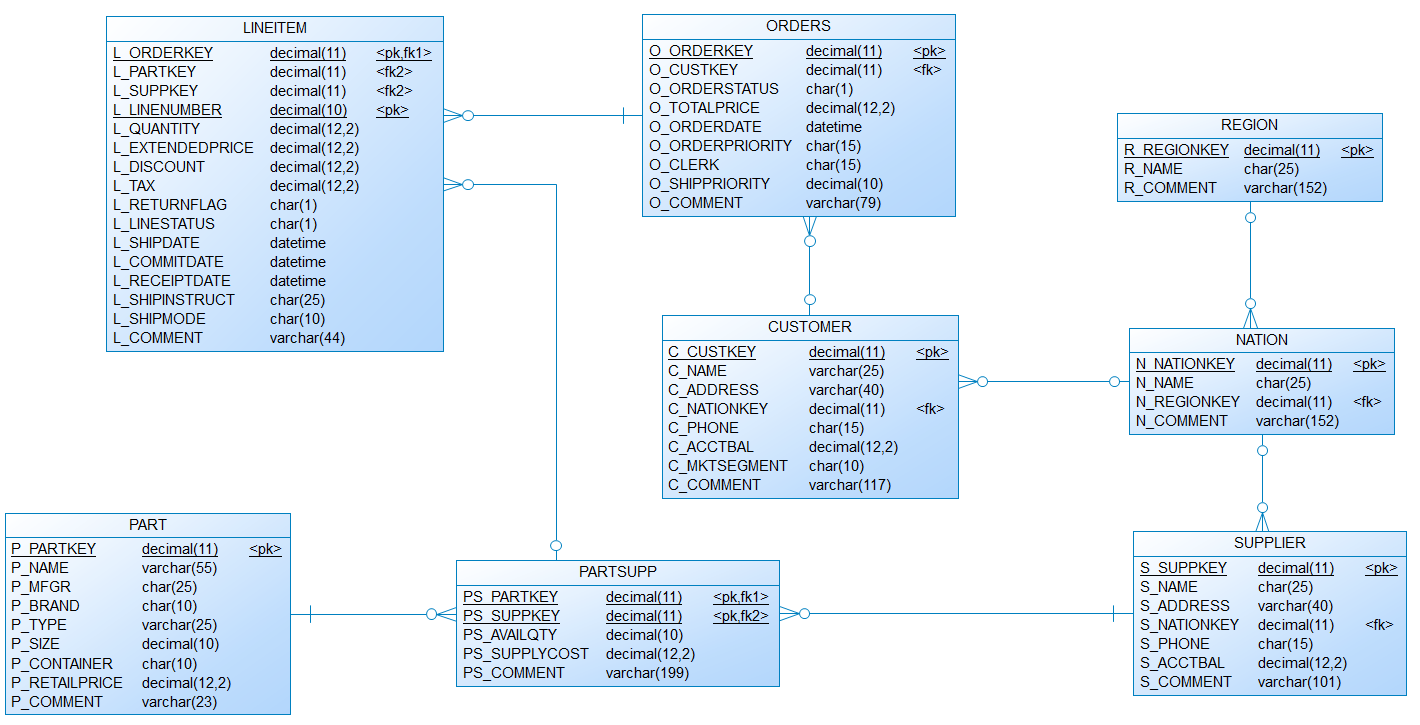Implements the TPC-H benchmark for Postgres
- The benchmark requires TPC-H dbgen:
wget -q https://github.com/electrum/tpch-dbgen/archive/32f1c1b92d1664dba542e927d23d86ffa57aa253.zip -O tpch-dbgen.zip
unzip -q tpch-dbgen.zip && mv tpch-dbgen-32f1c1b92d1664dba542e927d23d86ffa57aa253 tpch-dbgen && rm tpch-dbgen.zip
- gcc
gcc --version
- python3
python3 --version
- python requirements
pip3 install -r requirements.txt
- some running instance of Postgres, e.g. if running locally, the following command should not fail
pg_config --version
- if you want to run the database locally, please find below the commands for Ubuntu 14.04
sudo apt-get install -y postgresql postgresql-contrib
sudo -u postgres createuser tpch
sudo -u postgres createdb tpchdb
sudo -u postgres psql << PSQL
ALTER USER tpch WITH ENCRYPTED PASSWORD '********';
GRANT ALL PRIVILEGES ON DATABASE tpchdb TO tpch;
\l
\q
PSQL
these can be adjusted for your OS easily.
In case you are using a remote PostgreSQL database, make sure your connection is working and you have a valid username and password.
$ psql -h <host> -p 5432 -d <database> -U <username> -W
Password for user tpch:
psql (9.3.23)
SSL connection (cipher: DHE-RSA-AES256-GCM-SHA384, bits: 256)
Type "help" for help.
tpchdb=> \q
Also make sure that you have full rights on the target database (GRANT ALL PRIVILEGES)
There is a single python file that implements all phases of the benchmark.
usage: tpch_pgsql.py [-h] [-H HOST] [-p PORT] [-U USERNAME] [-W [PASSWORD]]
[-d DBNAME] [-i DATA_DIR] [-q QUERY_ROOT] [-g DBGEN_DIR]
[-s SCALE] [-n NUM_STREAMS] [-b] [-r]
{prepare,load,query}
tpch_pgsql
positional arguments:
{prepare,load,query} Phase of TPC-H benchmark to run.
optional arguments:
-h, --help show this help message and exit
-H HOST, --host HOST Address of host on which PostgreSQL instance runs;
default is localhost
-p PORT, --port PORT Port on which PostgreSQL instance runs; default is
5432
-U USERNAME, --username USERNAME
User for the PostgreSQL instance; default is postgres
-W [PASSWORD], --password [PASSWORD]
Password for the PostgreSQL instance; default is
test123
-d DBNAME, --dbname DBNAME
Name of the database; default is tpch
-i DATA_DIR, --data-dir DATA_DIR
Directory for generated data; default is ./data
-q QUERY_ROOT, --query-root QUERY_ROOT
Directory for query files; default is ./query_root
-g DBGEN_DIR, --dbgen-dir DBGEN_DIR
Directory containing tpch dbgen source; default is
./tpch-dbgen
-s SCALE, --scale SCALE
Size of the data generated, scale factor; default is
1.0 = 1GB
-n NUM_STREAMS, --num-streams NUM_STREAMS
Number of streams to run the throughput test with;
default is 0, i.e. based on scale factor SF
-b, --verbose Print more information to standard output
-r, --read-only Do not execute refresh functions during the query
phase, which allows for running it repeatedly
-
prepare
The prepare phase builds TPC-H dbgen and querygen and creates the load and refresh (update/delete) files. -
load
The load phase cleans the database (if required), loads the tables into the database and creates indexes for querying. The results for this phase consist of the following metrics:- Schema creation time
- Data loading time
- Foreign key constraint and index creation time
-
query
The query phase is the actual performance test. Ir runs twice, with a reboot. Each run consists of two parts:- Power test: This consists of sequential execution of the refresh functions and the query streams. It reports back with the execution times for:
- refresh function 1
- query execution time for the 22 TPC-H queries
- refresh function 2
- Throughput test: This consists of parallel execution of the query streams and the pairs of refresh functions
- Power test: This consists of sequential execution of the refresh functions and the query streams. It reports back with the execution times for:
The complete process for executing TPC-H tests is illustrated in the following figure:

- Sometimes the data generation phase fails due to file permission issues. In such a scenario delete the data directory and all generated
.tblfiles inside yourtpch-dbgendirectory.
- For notes on how to the TPC-H benchmark works see the paper iceis2012.
- For the TPC-H benchmark specification see this document.
